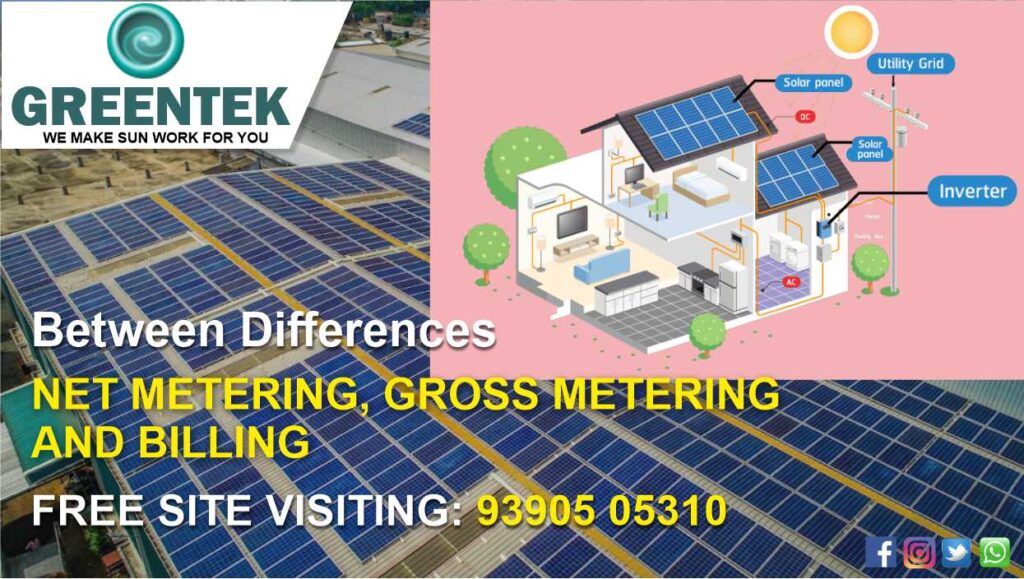
Difference Between Net Metering, Billing and Gross Metering
The use of solar panels from CEC licensed solar installers to produce electricity at home is very popular in India. The availability of affordable solar panels in India, together with the government-sponsored rebates, is what is causing this rise in demand. Electric meters keep track of the electricity we consume in our homes and places of business. The electricity bill is produced based on how many units are used.
What Happens During Standard Metering?
In the case of Standard or normal metering, there is a unidirectional meter installed by the power utility company. In this type of metering, the installed meter measures the amount of electricity consumed by your house.
Net Metering
- Net metering makes solar energy more affordable and economical for India.
- When the solar panels produce too much power, it is fed into the grid. When the solar panels are not producing enough power, this power can be drawn from the grid.
- Net metering records consumption from the grid as Import, while excess electricity pumped is recorded as Export.
- In the case of a grid-connected system, the utility company distributes the electricity produced by the solar PV system to others.
- The energy generated by the solar panels will first be used to power your home under net metering.
- For supplying excess power to the grid, you will receive a rebate.
- Net metering compensates you at the retail rate, which is the same rate at which you purchase electricity from the grid.
Net Billing
- Net billing is not the same as net metering.
- Net billing sells excess electricity to the grid at a lower cost than what you will pay the utility as a customer.
- You will not receive a credit on your utility bill if you use net billing, but you will receive the Rupee value (wholesale electricity rate).
Gross Metering
- In gross metering, you cannot use the electricity generated by the solar PV system installed by the CEC ( a company that has signed the Clean Energy Council Solar Retailer Code of conduct) accredited solar installers.
- The solar panels’ power is sent directly to the grid, where it is distributed to various customers.
- In gross metering, the utility pays the customer a fixed feed-in tariff that is lower than the retail tariff.
- You will continue to receive monthly electricity bills based on your usage with gross metering.
- You will be paid separately for the electricity you supply to the grid.
Net metering should be the preferred option for Indians who want to generate solar power from solar panels installed by CEC-accredited solar installers over net billing. On the other hand, gross metering is a good option for INDIA homeowners who have ample space but don’t want to use the generated solar power to power their homes.

